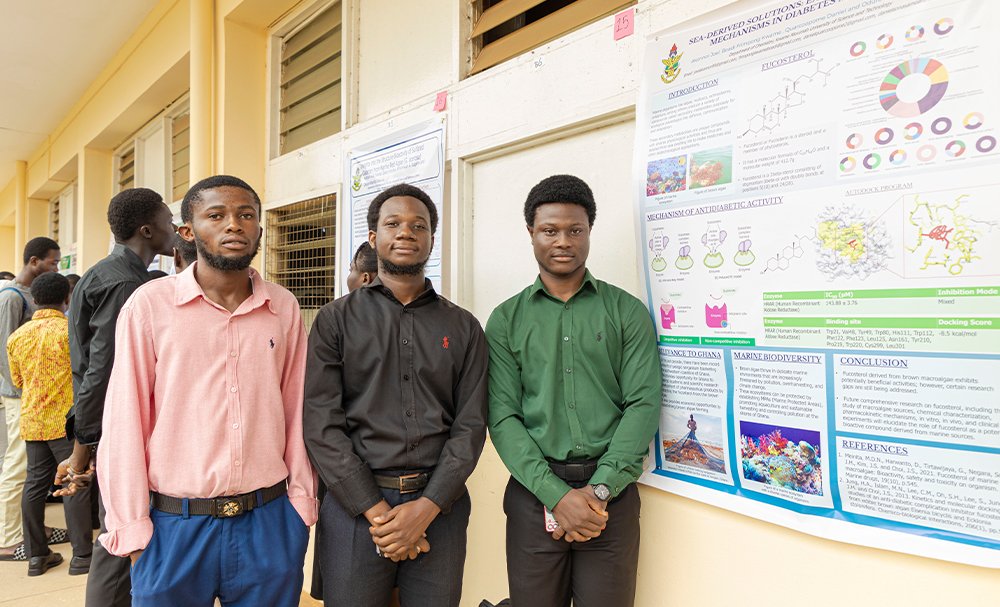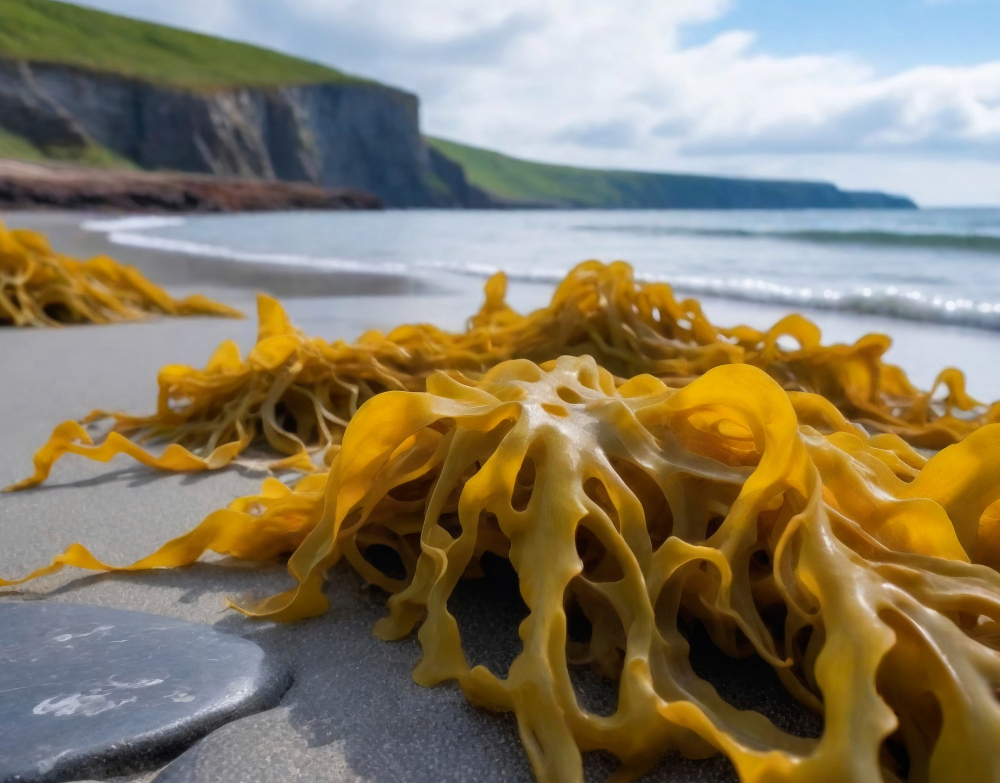Chemistry students at Kwame Nkrumah University of Science and Technology (KNUST) have identified a compound in brown algae that could help manage diabetes, raising hopes for both medical and economic gains from Ghana’s underused marine resources.
The students, Joel Akonnor, Kwame Frimpong, Daniel Quarcoopome and Danielson Oduro Asamoah, focused their research on fucosterol, a natural compound found in seaweed that often washes up along Ghana’s coastline and is usually discarded by fishermen.

Computer simulations showed that fucosterol attaches to enzymes linked to diabetes, reducing their harmful effects and potentially slowing the disease’s progression.
“We have a lot of these brown algae piling up on the shores. Most of the time, fishermen just throw it aside and leave it to rot. But research shows these algae have valuable bioactive compounds that can be studied and developed into medicine,” Quarcoopome said.
The team cautioned that more studies are needed before the compound can be developed into treatment. “We want to know the toxic levels and perform more tests before it can be developed for pharmaceutical use. The next step would be clinical trials to check its safety in humans,” Joel said.
Beyond health, the students see economic opportunity. Kwame noted that coastal communities could sell seaweed to pharmaceutical companies or develop seaweed farming, which is already common in Asia and Europe.
The project underscores how Ghana’s overlooked marine resources could be turned into valuable products.
| Story: Edith Asravor (URO) Photos: Emmanuel Offei (URO) |

















